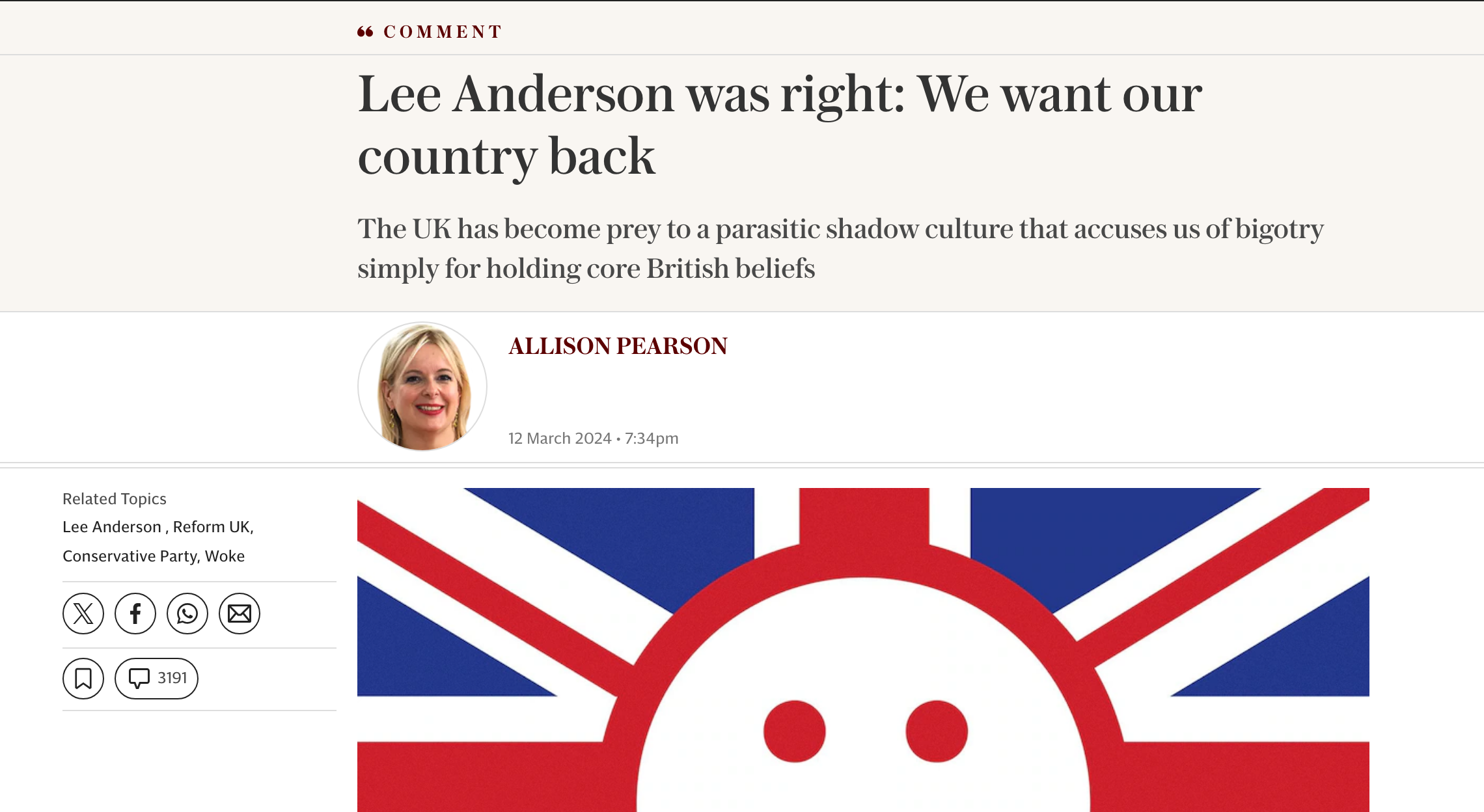Navigating Power and Prejudice: Sadiq Khan’s Journey as a Muslim Leader
This blog focuses on the upcoming mayoral elections in London, with a particular focus on Sadiq Khan, the current Mayor and member of the Labour Party. Before assuming his mayoral role, Khan served as MP for Tooting, showcasing his longstanding commitment to British politics. Throughout his career, Khan has been a vocal advocate for various issues like affordable housing, transportation, and social integration within London.
However, alongside his commendable efforts, Khan has unfortunately encountered anti-Muslim hate alongside his political journey. This bigotry not only tarnishes Khan’s personal experience but also profoundly impacts the broader Muslim community. This phenomenon is not new, with Khan enduring such discrimination and intolerance for a significant time.
It is important that people care about this issue because it’s not just about Sadiq Khan– it’s about fighting against prejudice and intolerance in our society. To effectively address anti-Muslim hate, we need to work together by educating each other, having open conversations between different faiths, and calling out discrimination when we see it.
Double standards
Boris Johnson's comments on burkas received no condemnation while if the same were said by Sadiq Khan, the reaction would likely be starkly different.
Attitudes Towards Sadiq Khan
Since the mayoral election in May 2016, Sadiq Khan has faced lots of criticism both online and in traditional media outlets. A recent example is the backlash Sadiq received around a rise in crime in London or trying to implement the Ultra Low Emission Zone (which was a plan from Boris Johnson). The criticism makes us wonder if there are deeper reasons behind it, particularly considering Sadiq Khan’s identity as a Muslim man in a position of authority. It is concerning to see such scrutiny directed towards Khan, especially when compared to Boris Johnson, who has faced minimal criticism for similar or even more significant issues. For example, Johnson’s controversial remarks on the burka in 2018, where he likened Muslim women wearing it to “bank robbers and letter boxes”. If we examine coverage from media outlets like The Sun, you will find articles like “LETTERS SPECIAL: Sun readers support Boris Johnson's views on the burka” or “BOJO BLAST: Boris Johnson's comments on burkas,” with no condemnation of his stance. However, if the same were said by Sadiq Khan, the reaction would likely be starkly different.
This media bias is clear to see in statistics which show a rise in anti-Muslim online hate directed at Khan. For example, media outlets such as The Standard and The Guardian have reported on a study conducted by City Hall, revealing that at least 317,736 racist and anti-Muslim abuse messages have targeted Khan since 2016. The study highlighted that a significant portion of this abuse is linked to the Ultra Low Emission Zone (ULEZ) policy.
Negative perceptions
The portrayal of Sadiq Khan in conservative media outlets has been scrutinised for potentially contributing to a negative perception of the Mayor
The portrayal of Sadiq Khan in conservative media outlets have been scrutinised for potentially contributing to a negative perception of the Mayor. Headlines from sources like The Telegraph or The Sun often feature hyperbolic language, such as The Sun’s article titled “As London stabbings reach ten per week - will someone please end this Khanage?” or “Londoners must end Sadiq Khan’s crime chaos”. These headlines often point fingers at Khan for problems in London, even though these are longstanding issues that all London Mayors have to address.
Harmful stereotypes
Such comments perpetuate anti-Muslim hate towards Sadiq and other Muslims, thereby promoting harmful stereotypes about Muslims controlling London.
Additionally, politicians in the public eye are contributing to the hate directed at Sadiq. Conservative MP Lee Anderson’s hate filled speech where he claims that ‘Islamists’ have gained influence over Sadiq and that “He’s given our capital city away to his mates.” Such comments perpetuate anti-Muslim hate towards Sadiq and other Muslims, thereby promoting harmful stereotypes about Muslims controlling London and being inherently dangerous for ‘British’ culture, however, ignoring the fact that Muslim’s make up 15% of London’s population. He also undermines Sadiq’s reputation and associates him with extremism because of his Muslim identity. Media outlets like The Telegraph have supported Anderson, with one article headlined “Lee Anderson was right: We want our country back.” Similarly, GB News voiced support, with conservative MP, Jacob Rees-Mogg stating, “Lee Anderson’s concerns about Islamism are entirely legitimate and he should not have had the whip withdrawn.” Lee Anderson has not apologised for his comments.
Amplifying hate
It’s concerning to see media outlets not condemning Anderson’s hateful speech and contributing to the amplification of anti-Muslim hate.
How media coverage of Sadiq Khan impacts the Muslim Community
Media coverage of Sadiq Khan has significantly contributed to the amplification of anti-Muslim hate. Khan himself has acknowledged the impact of such coverage, highlighting that comments like those made by Lee Anderson “add fuel to the fire of anti-Muslim hatred.” It’s concerning to see media outlets like GB News and The Telegraph not condemning Anderson’s hateful speech. This silence allows divisive messages to spread freely, especially with the rise in anti-Muslim hate in the UK.
Furthermore, observing the constant criticism directed towards Sadiq Khan is disheartening and uncomfortable. As a Muslim individual myself, it's a reminder that anti-Muslim hate still persists in the UK. It’s frustrating to see how Sadiq is singled out because of his Muslim identity, it shows that we still have a long way to go when it comes to combating prejudice and intolerance.
Combating Anti-Muslim Prejudice
1. Educate yourself on the challenges Muslims in the UK face.
3. Follow our digital channels to read our next article addressing hate speech based on religion during Ramadan!





